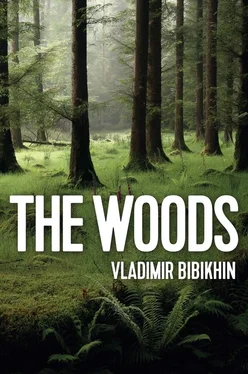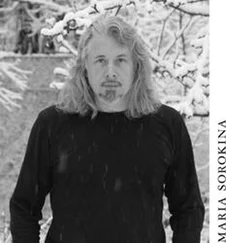I repeat that what is important for us is that in the school of unceasing prayer there is a clear boundary, a stage beyond which seeking becomes finding. The practitioners of unceasing prayer differ not by the fact that starets (elder) Vasilisk of Turov would remain motionless in prayer for twelve hours at a time and say the Jesus Prayer on a rosary 12,000 times a day, while starets Zosima Verkhovsky, founder and father confessor of the cenobitic convent of the Virgin Hodegetria near today’s Naro-Fominsk, did even more, 2and that now we can compare them with the spiritual proficiency of Arseniy Troyepolsky, the Hieromonk of the Pafnutiy of Borovsk monastery, who died in Nara on 7 July 1870. 3What is important is the discovery that all that matters is faith, not in humankind, but in the fact that humans as they are have the capacity as part of their being, not by chance, or some fluke, or by a stroke of luck, but of necessity, for unceasing prayer: prayer tied to their breathing, to their heartbeat, to the food they eat and their eating, but as something integral to their body, which is also called attentiveness.
Secondhand information strikes us as unreliable, and those actually praying say little directly about it and remain serenely reticent. The Pilgrim, as he is known from our reading, might seem to be a fictitious figure, irredeemably anonymous, so perhaps a mere legend leading us in the opposite direction from reality. But he is Russian literature and, moreover, an important event in Russian literature through whose miracle the Pilgrim becomes direct and conclusive testimony, a primary source on unceasing prayer. The fact that he somehow additionally embodies almost every tradition of Russian thought – the Siberian tradition through Zosima Verkhovsky; the tradition of the followers of St Ignatiy Bryanchaninov through Arseniy Troyepolsky; 4the official, ‘synodal’ tradition through his final and definitive editor, Feofan the Recluse; 5and, indirectly, that of the Optina Pustyn monastery through the attention, if not uncritical, he pays to the experience of Vasilisk of Turov, the teacher of Zosima – that makes the Pilgrim all the more impressive, confirming something everybody in any case senses: that he is authoritative.
If unceasing prayer was achieved in the forest, in the backwoods (Zosima Verkhovsky when he came to the Moscow region from Siberia -and it is through Siberia that the Pilgrim mostly travels – sought out the most obscure and marshy of locations), we need to ask whether it is even possible without raw experience. It is not an intellectual matter but brings us back down to the earth of the heart, to primal matter, to the void at the beginning of the Book of Genesis; since otherwise how does it produce its sobering effect?
Unceasing prayer comes from an encounter with the intimate, real God, and leads us to silence. The strictness of divine attentiveness rules out easy solutions and leads us to confront the irresolvable. And indeed, it is not for humans to define their relationship with something more powerful than themselves. Humans can decide only not to run away, to show fortitude when something comes so near, because returning to the truth of the forest, to the heartbeat, to breathing, is to come closer to the fire. As already in the twentieth century, in the Prayer Diary of the starets Feodosiy of Karulia on Mount Athos, in the entry for 3 September 1937, a month before his death on 2 October, we read,
A heat began … to flare from the heart in my bosom, and became so strong that my heart seemed aflame … and became agitated by this great heat, which began to spread from my bosom down to my lower abdomen … although with great effort I managed not to abandon my prayer, trusting in God, during this time of temptation. The flame in my heart and in all my body gradually passed from this heat. 6
Returning to the physical is risky; indeed, dangerous.
We may define spirituality as a return to the body, only not to a concept of the body that never advances beyond the fantasy of an inappropriate fusion of mind and body but to the body as our unapproachable double that forbids any flirtation, any commerce of the mind with it.
The woman’s bleeding could be healed suddenly, not by human efforts but by the approach of the divine presence, which always occurred. We read in Psalms, 16: 8, ‘O my soul, thou hast said unto the Lord, Thou art my Lord: my goodness extendeth not to thee.’ The Creator does not move, he is eternally close; neither does the one who sees him move. Does this eternal relationship apply only to the Church, and not to everyone? What is vast attracts by its very weight. If the sun with its storms and flares came close to us, it would certainly be frightening, but not as frightening as the approach of God. ‘The fear of God, bringing about unceasing worshipful prayer to God and ensuring observance of Christ’s commandments, leading to reconciliation with God, when fear is transformed into love and the anguish of prayer, transformed into sweetness, fosters the flowering of enlightenment … the knowledge of God’s mysteries.’ 7Faith is believing that this precisely is the way everything stands with humankind. One is returning to oneself. From whence? Folly and stupidity say, from freedom to the yoke of unfreedom. No! From the void into history.
Unceasing prayer reveals, then, humanity’s ancient task, through which alone what is truly occurring is revealed. Those who have had faith, those who have achieved unceasing prayer, returning to humankind like seeds of the present, of real history, these are the markers of the history of our land. Those who retreated into silence, who began to envisage their destiny in terms of the moment they would stand before the eternal, the unchanging – St Seraphim of Sarov, Vasilisk of Siberia, the Pilgrim – are more assured in their plotting of the course of history than Russia’s writers within the literary process, although these, too, are toiling in the workshop, their work, too, is illuminated by inspiration. These holy men are guiding stars no less than the earliest sages of the ancients.
The silent contemplatives are like pillars supporting the devotion of the Church [and perhaps not only of the Church, Bibikhin ] by their secret continuous prayer: Even in the distant past one sees that many devout lay-folk, and even kings and their courtiers, went to visit hermits and men who kept silence in order to ask them to pray for their strengthening and salvation. 8
What I would like is to put an end to the separating of faith from philosophy and, more broadly, of faith from culture. Also, of course, of one faith from another. All that is different about them is their different languages. Anyone who claims their faith is ‘better’ than others is a pagan who has not yet noticed that theirs is not the only language in the world, who imagines that the world does not extend beyond their village, their pagus. Whether such benighted people like it or not, everything of significance in their language springs from the same soil as that from which other languages grow. There is no reason to repudiate one’s own language, but not to listen to someone else just because they speak a different language is to be deaf also to one’s own language and, indeed, to oneself, because every person, every day of their life, has their own language. People’s laziness and weariness cause their language to ossify ridiculously even as they cling to it. It only seems that loose language is the opposite of pedantic language. In fact, both have that same inertia, that same parochialism.
The threshold of silence stops bleeding, stops the spattering of blood, assuming, of course, that is what the woman with an issue of blood wants, and is not deliberately spattering it around in the belief that this is somehow a ‘flight of intellect’ or ‘freedom of thought and expression’.
Читать дальше












